Maximize Your Potential. Maximize Your Results… A Day in the Life with Tristyn Lee.
Nutrition is arguably the most important component when it comes to ideal performance in the gym, and the results you see (or don’t see).
Ensuring you get the appropriate amounts of vitamins, minerals, macronutrients, and overall calories throughout your day is absolutely essential to making sure your body functions optimally, is prepared to crush it in the gym, and can recover adequately to facilitate gains and losses where you want them.
That being said, here’s a breakdown of how I fuel my workouts, and my entire day, to achieve my greatest potential both inside & outside the gym…
My priority is always sufficient protein & overall calories in order to maximize strength & muscle growth. For protein, I aim for a minimum of 1g/lb of body weight, but I’ll often go over in order to keep myself satiated throughout the day and prevent hunger and/or overeating on other macros. The rest of my calories will come from carbohydrates or fats as an energy source. I’ll aim for a total of between 2300-2600 calories everyday, depending on how active I am that day.
Right now my diet is low carb overall, so my carbs are low and the majority of my energy outside of protein is coming from fats. I personally find fats beneficial for joint health, mental well being, and my overall performance. However, others may find carbohydrate fits their needs better.
PRE-WORKOUT NUTRITION:
I personally don’t train fasted right now - I find getting protein in anywhere from 1-4 hours before workout helps my performance in the gym, making output a lot higher than if I were to fast before my training session. I always ensure I finish my meal a minimum of 1 hour before my workout to avoid stomach discomfort. If i’m eating 2-4 hours out from my session, then that meal is typically heavier, slower to digest, or has a lot more fat content.
*Some people will prefer prioritizing carbohydrate before their workout, as they’ll find improved performance that way. This tends to be a personal choice based on how you feel as an individual.
When it comes to protein sources, I prioritize whole food sources first, such as such as steak, chicken, fish and poultry, even organ meat (organ meat has particularly high vitamin content compared to muscle meat like steak or chicken breast). I only supplement with things like protein powder when I don’t have whole food options available, or I’m short on my grams overall and need to use it to top up on my protein for the day.
Electrolytes are an important consideration when preparing for your workouts as well. You sweat out a lot of salt and electrolytes (magnesium, potassium, sodium) during your workout so it’s important to keep levels of electrolytes up prior to exercise. Low electrolyte during your workout can make me feel weak, dizzy, and give me muscle cramps. I typically salt my pre-workout meal with 2-3g of sodium to avoid this.
Potassium: I’ll personally get potassium from meat and salmon particularly, although there are some plant based foods that can be high in potassium as well, only issue is a lot of plant based stuff can be low in potassium because the soil these foods grow in these days tends to very depleted of minerals like potassium.
Glucose: I avoid having foods that will spike blood glucose really fast (maltodextrin, dextrose, etc.) because this can cause me to be sluggish during workouts, if you’re a endurance-based athlete (doing long duration exercise) it may be beneficial to have carbs pre and post workout to replenish glycogen, but for weight lifting I personally find it doesn’t make a difference because duration of my workouts are shorter (1-1.5 hours) and I’m only working out once a day, so I don’t need to replenish glycogen as frequently or quickly.
Hydration is super important, I’ll average more than 100 oz+ on active days, although everyone is different. To put in perspective, this is about 5 standard shaker bottles. This isn’t a hard fast rule but it’s what works for me. I’ll drink at least 16 oz of water before my workout, and then throughout my workout I’ll sip on water as well. Pre-Workout: I’ll have CHIMERA PRE WORKOUT to kick-start my training, get the energy and motivation going with the 281 mg of caffeine. I find this to be a perfect balance to avoid a crash post workout. It’s not too much, not too little.
One of the drawbacks of my low carb diet is I can feel flat because I don’t have the carbohydrates to retain a bit of water. This is one of the reasons I like taking CHIMERA PUMP 15-30 min before my workouts. CHIMERA Pump contains ingredients like glycerol, betaine, Citrulline, sodium which can help draw water into the muscle. This allows me to feel fuller and perform better during my workout in the absence of carbs. I notice I feel like I can workout longer and drive more output this way.
I make sure to drink a lot of water with these ingredients in order for them to work maximally, otherwise they won’t have enough water to draw it into the muscle. It’s great because whether you’re on low carb or not, you can still take Chimera Pump and get the benefits.
POST-WORKOUT NUTRITION:
Personally, I don’t really believe in or worry about the “anabolic window.” I tend to focus on total protein intake during the 24 hours of the day. From what I’ve read, this appears to be a more important factor over protein timing and the results seem to show it in my experience.
Meal Timing: eating too late can interrupt my sleep, so I try to prioritize getting the majority of my calories earlier in the day and having lighter meals later in the day. It’s also why I try to finish my last meal at 5 pm, about 3-4 hours before sleep to give time for the food to digest.
One of my favourite supplements to take before bed is Magnesium Bisglycinate. It helps me relax and calm down before bed, allows me to get into deep sleep, and to perform optimally the next day.
Gains are made outside the gym. Training for me is only 1-1.5 hours each day, so I try to optimize everything outside of that, including my nutrition, to prioritize and get the most out of my training.
Alright, so here’s what a typical day of eating looks like for me overall:
Meal 1 (1-4 hours before my workout):
- Sirloin Steak 12 oz
- Bowl of Bone Broth for collagen
- 2 oz of Liver (or some sort of organ meat)
- Salt to taste for sodium (or 2-3 g of sodium prior to workout)
Meal 2:
- 7 oz of Atlantic Sockeye Salmon
- 5 oz Ground Beef (85% ground beef or 90% lean ground beef depending if calories are too high or too low)
- 3 whole eggs
Meal 3:
- 10 oz Ribeye Steak
- 5 oz of Ground Lamb
I truly hope this has helped provide some valuable insight for you guys, and gives you a few things to think about or possibly tweak in your own diet!

